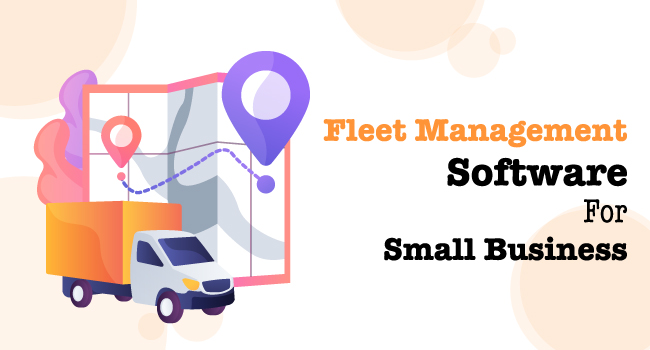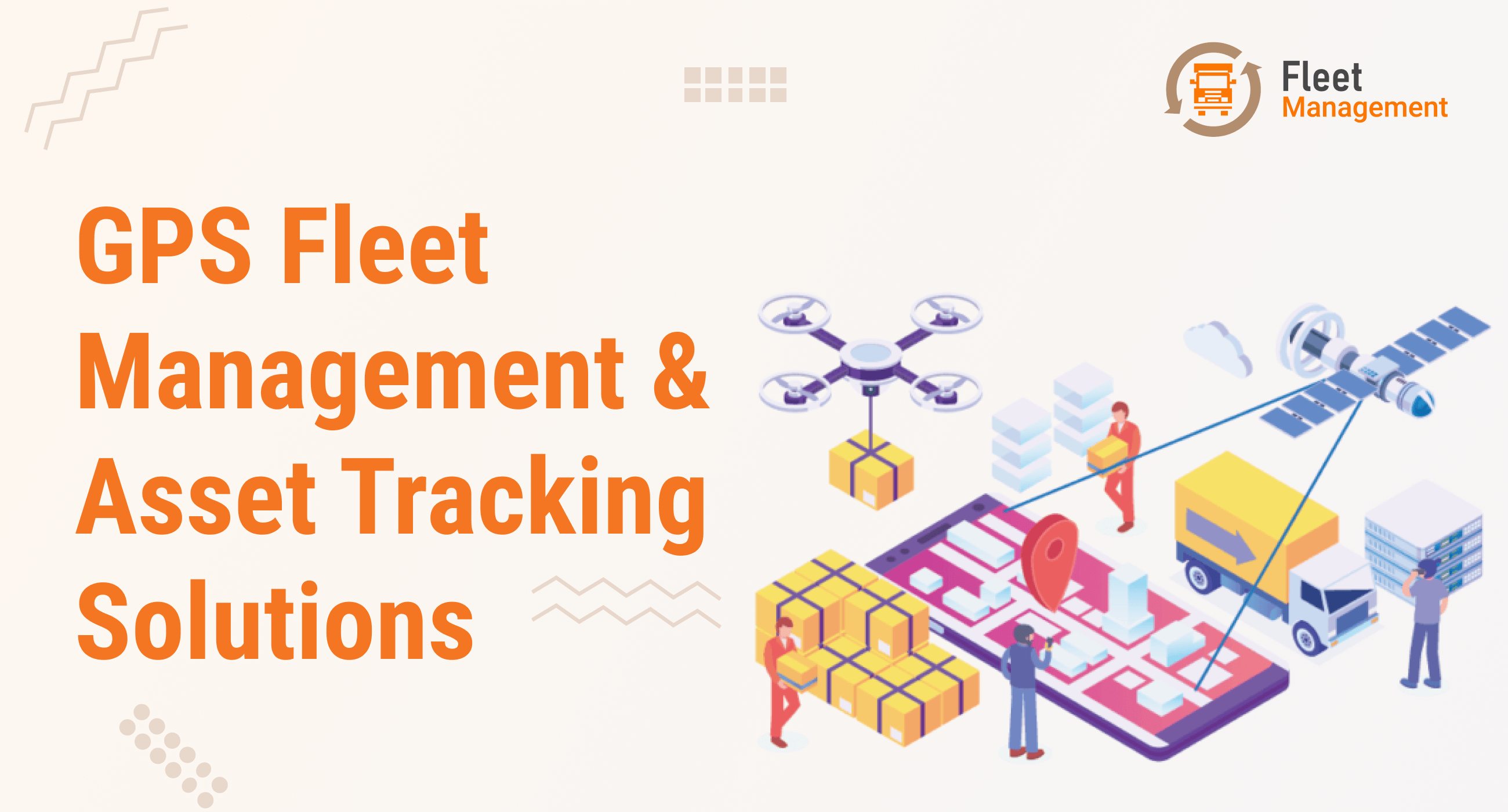Our Blogs
 Fleet Management()
Fleet Management() Car Rental Software()
Car Rental Software() Fleet Drivers()
Fleet Drivers() Infographics(0)
Infographics(0) News(0)
News(0)
Service We Offer
Follow Us
Fleet Management Solutions and GPS Fleet Tracking
Logistics is an important component of every organization that generates output regardless of industry. Any business’s logistics operations are mostly dependent on a fleet of vehicles, including trucks, automobiles, machines, and aircraft. Businesses hire fleet managers to monitor, track and manage each vehicle in their fleet. It may vary from small fleets of a few cars to big fleets of hundreds of vehicles.
Fleet management solutions provide customized solutions depending on the business’s or transporter’s requirements. It includes vehicle tracking, route planning, optimization, fleet management, and various additional services. Additionally, they give company owners greater transparency and control over operations by monitoring and managing their whole fleet from a single location.
What is Fleet Management System?
A fleet management solutions (FMS) is a web-based application that allows for the monitoring and administration of cars and technicians. Consider fleet management solutions as a consolidated dashboard from which managers can monitor important performance indicators, obtain real-time insights and analytics, and employ technologies to assist in making essential business decisions. For instance, a fleet management system will enable you to see drivers’ whereabouts on the road in real-time. You may use this method to see whether your drivers are doing their jobs correctly or taking longer breaks at rest stops than required, for example.
Read Also: Benefits Of Online Car Rental Software
Additionally, fleet management systems give visibility into vehicle availability daily or hourly, delivery updates, cumulative on-road time, weather warnings, and strategic route modifications, among other things. Simultaneously, a fleet management system may give rapid access to a range of historical statistics, such as continuing maintenance expenses, technician and driver productivity summaries, and weekly fuel or mileage records.
Of course, manually compiling this data would be very time-consuming, but the fleet management system simplifies the process. It is significant because timely access to this information may significantly improve a fleet’s overall effectiveness.
How Fleet management solutions can help your business
Four areas are likely to gain from fleet management solutions: efficiency, performance, safety, and compliance. Here are some specifics on what to anticipate.
1.Efficiency
Fleet management has evolved into a comprehensive structure that enables you to determine the location of your vehicles; determine whether they are parked, idling, or moving (and at what speed); monitor scheduled and actual arrival times transform maintenance from reactive to preventive. You may save money by using near-real-time diagnostics that alert you when a vehicle has performance difficulties or needs repair.
You may optimize fleet schedules depending on available service hours. Additionally, you may keep a careful check on driver performance, both operationally and safely. Your home office may gain visibility with telemetry monitoring, allowing dispatchers to know where all their cars are and where they are scheduled to be at any given time
2. Performance
Improved management entails more knowledge and control of your fleet’s cars and drivers, allowing you to optimize their performance and cost-efficiency. It includes understanding the state of your cars and how they are being driven, assessing the engine’s and other essential systems’ functionality, and regulating fuel consumption.
Additionally, monitoring both vehicle state and driver performance can optimize fleet fuel management and save money on gasoline. Having data on idle and driving behavior, such as rapid acceleration and speeding, enables you to make adjustments and save money.
3. Safety
Always put the safety of your employees and vehicles first. Speed, lane changes, aggressive driving concerns such as quick acceleration or harsh braking, unannounced stops, excessive idling, breakdowns, vehicle accidents, and out-of-route miles may all be monitored using in-car sensors.
Access to this data enables you to guide your drivers toward more responsible conduct and assist in ensuring that all of your rules are followed.
What are the outcomes?
Fewer accidents and greater safety performance result in fewer liability claims, fewer traffic penalties, reduced insurance rates, and less worry about cars being taken out of service due to accidents.
Additionally, drivers aware that their conduct is observed are more likely to adhere to your rules, traffic laws, and industry requirements. Geofencing – the process of establishing geographic boundaries around your cars – may help keep them out of unapproved geographic regions or construction zones where they may be more vulnerable to theft or damage. Drivers may be informed if they enter such zones or deviate from their planned path in any way.
4.Compliance
Compliance is critical regardless of the size of your fleet. Maintaining compliance with regulations governing driver time limits, mandatory activity records, fuel tax payments, inspections, and other regulatory obligations is made simpler with fleet management systems that contain electronic logging devices or ELDs. You can almost remove paperwork and the danger of human mistakes when using ELDs. Logs are guaranteed to be accurate and quickly accessible. It streamlines reporting and lets you keep a closer eye on activities and optimize trip planning. Drivers no longer have to waste time filling out forms and can instead concentrate on what you paid them to do: keep your cars on the road and produce income.
By providing extensive logging data, ELDs may help save inspection time. It simplifies inspections and removes the need to deal with handwritten records as you attempt to verify service hours and correct any inaccuracies in your reports. It doesn’t matter how big or small your company is; a fleet management system may help you better track and manage your cars and their drivers.
What is Vehicle Fleet Management?
Vehicle fleet management supervises all fleet maintenance and operations to maximize the company’s efficiency and reduce risk. Any firm that regularly uses commercial vehicles should have some fleet management. Fleet managers are engaged to oversee all aspects of fleet operations. It involves the following:
- managing drivers
- vehicle upkeep
- contract negotiations with suppliers
- planning of routes
- asset management
- cost control of gasoline
- keeping an eye on fuel usage
- reducing waste
- increasing business productivity
Additionally, fleet managers and operators use vehicle fleet management software to streamline operations and ensure compliance with the ELD regulation.
How is fleet management related to GPS?
GPS fleet monitoring entails tracking fleet vehicles’ position, speed, and route using GPS receivers installed inside. Vehicle efficiency and driver behavior may be improved by analyzing this data, and then supplied to the fleet management.
Is fleet management smarter with GPS tracking?
GPS monitoring has provided fleet management experts with more control and information, reducing driver stress. They may also become more effective in their occupations as a result. Numerous notifications may be quite beneficial to drivers. They will not take the incorrect route by mistake since an alarm will be provided if this occurs. Previously, drivers were forced to depend exclusively on their navigating abilities. Even the most accomplished and seasoned drivers make errors. They are less likely to have similar difficulties nowadays.
Read Also: 8 Tips for Managing Fleet Vehicles
Fleet managers now have access to a high-tech virtual road map that benefits everyone. They may see what occurs on the road in real-time. Drivers, customers, and everyone else will benefit from more assistance. They have put in place a structure that will assist them.
Additionally, GPS monitoring enables experts to maintain far more meticulous records than they ever could in the past. They will include exact details of what occurred on the route and any significant incidents. Consequently, professionals will effectively assess an employee’s job performance while also avoiding some disputes that might arise in these situations. This data is accessible at all times, even when the automobiles are still on the road.
What are the advantages of a GPS tracker in fleet management?
In the realm of transportation technology, it pays to understand your fleet’s requirements and how developing technologies might assist your business the greatest. GPS fleet tracking is a time-tested technique that encompasses more than dots on a map.
To get the most out of GPS tracking, you need the first grasp the advantages of GPS tracking and how they may assist you in meeting your business’s objectives. The following are the top five advantages of GPS tracking:
- INCREASED SAFETY
- REDUCE FUEL EXPENSES
- REDUCED OPERATING COSTS
- EXPANDED PRODUCTIVITY
- THEFT RECONSTRUCTION
What is the best fleet management software solution?
As every business with a fleet of vehicles is well aware, a fleet management system is a necessary tool for ensuring cost-effective and productive operations. From precise vehicle monitoring to fuel management, we’ve highlighted the five must-have features for your fleet’s cars below, along with their associated benefits:
- Vehicle monitoring through GPS
- Analysis of driving behavior
- Fleet-wide alerts
- Management of fuel
- Route planning and surveillance
Conclusion
Using a GPS tracking strategy is appropriate for businesses that handle high-value automobiles. Its primary objective is to increase fleet efficiency and give insightful vehicle and driver performance data. A firm may significantly cut its fuel consumption, maintenance expenses, accident rate, and paperwork with the appropriate software in place. Not to mention the improved recovery time and decrease in fleet assets that is lost or stolen.
Last but not the least, a fleet monitoring system has the potential to significantly increase company income and profitability, as well as enhance customer service. If you are also looking to incorporate a fleet management system in your business, contact us today!







